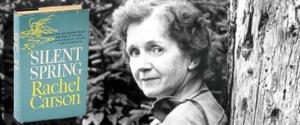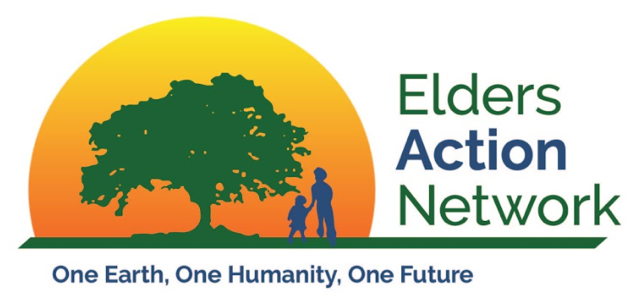 In 1962 biologist Rachel Carson published her fourth and most influential book, Silent Spring. It was groundbreaking. She sounded the first alarm about the use of dangerous pesticides and chemicals. DDT and other pesticides were banned. A presidential commission confirmed her science-based findings and eventually, the EPA was created in 1970. Rachel Carson became a social revolutionary who helped to develop modern ecology. She saw these issues as moral choices. Carson pulled together the scientific evidence so that the public could see the whole picture and this initiated the start of today’s environmental awareness.
In 1962 biologist Rachel Carson published her fourth and most influential book, Silent Spring. It was groundbreaking. She sounded the first alarm about the use of dangerous pesticides and chemicals. DDT and other pesticides were banned. A presidential commission confirmed her science-based findings and eventually, the EPA was created in 1970. Rachel Carson became a social revolutionary who helped to develop modern ecology. She saw these issues as moral choices. Carson pulled together the scientific evidence so that the public could see the whole picture and this initiated the start of today’s environmental awareness.
Today the EPA has a list of fish that are not fit to eat. One of the problems is Mercury contamination. But the EPA says limiting Mercury is too costly for fossil fuel plants. Another factor arises when fragments of plastic are present in the bodies of the fish. These can be invisible, degraded nanoplastics, which can penetrate human cells and tissue.
Unfortunately, last week, the Trump administration announced the repeal of a major Obama-era clean water regulation that had placed limits on polluting chemicals that could be used near streams, wetlands and other bodies of water.
What can you do? Make no assumptions!
Start with your local municipality. Water quality reports are part of the public record. If you have questions or concerns go to the monthly meeting of your local government. Ask questions. Insist on properly-sourced expert information and a reasonable timeline. There is always strength in numbers. Find others who share your concerns. Work together.
- Take it to the next levels: county and state water quality reports. If there are questionable commercial operations that might affect the water get the whole story about what is going on. If you don’t get information most newspapers and TV stations have an ombudsman who will take your concerns seriously and investigate.
- Explore the Clean Water Network: a cooperative group in all fifty states with extensive experience in the field. They can identify resources to help and share how they have organized to support the fight for clean water.
- For ideas to solve plastic pollution see this video: The Story of Stuff Project: How to Stop Plastic Pollution Forever (3:22 min.)
- Check Food and Water Watch. They advise: “Fight like you live here!”
“The human race is challenged more than ever before to demonstrate our mastery, not over nature but of ourselves.” -Rachel Carson
